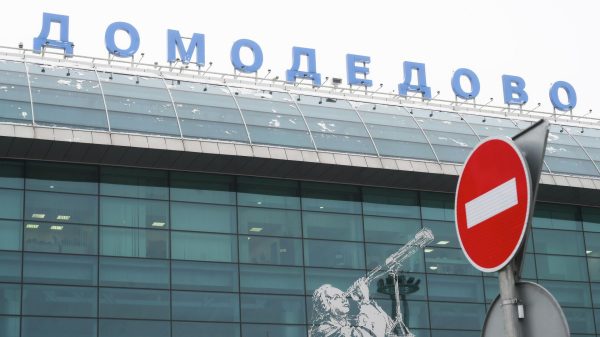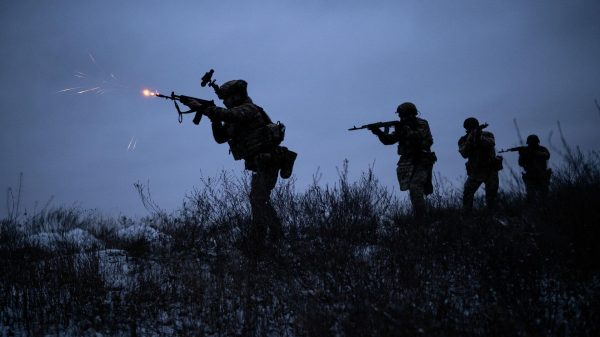Sign up for the Guardian’s First Thing newsletter
Voters in Los Angeles have approved new limits to police power, elected a prosecutor who promised to reopen police shooting cases and mandated that 10% of the local budget be spent on prevention programs rather than incarceration.
The slate of progressive victories in Los Angeles, which counts 10m residents and is home to the largest jail system in the United States, show the potential impact of local wins for criminal justice reform, as well as the growing electoral influence of Black Lives Matter.
How Black Lives Matter reshaped the race for Los Angeles’ top prosecutor
Read more
“So many people got involved and wanted to vote,” said Leah Garcia, an East Los Angeles resident whose 18-year-old son Paul Rea was shot to death by a Los Angeles sheriff’s deputy in 2019. “A lot of the families I talk to – we’re tired of living in fear.”
Los Angeles elected a new district attorney, George Gascón, who has pledged not to keep people in prison when they are up for parole, not transfer teens to adult court, not pursue the death penalty and won’t use “gang enhancements”, which have long been used in racially discriminatory ways.
Though Gascón faced protests in his former job as San Francisco district attorney for refusing to prosecute officers in several high-profile police killing cases, he vowed during the campaign in LA to reopen some police shooting cases, and has said that incarcerating people for low-level offenses during the coronavirus pandemic is “unconscionable”.
Law enforcement unions had contributed millions of dollars in political spending to backing Gascón’s opponent, the incumbent prosecutor Jackie Lacey.
For the past three years, Lacey had refused to meet with Black Lives Matter activists protesting against what they say are more than 600 police killings and in-custody deaths of prisoners since she took office in 2013 and Lacey’s refusal to prosecute the officers responsible.
Gascón held his first meeting with Black Lives Matter on Monday, three days after his victory over Lacey, and he acknowledged how instrumental the group’s organizing against his opponent had been.
“There was a symbolic reason why we’re here first,” he told Black Lives Matter. “Because so much of what has happened, you have made it happen.”
“I used to say the system is broken, and I have come to the conclusion that the system is doing exactly what it was designed to do,” Gascón told the families gathered in a church basement. “In this country, policing, prosecution – a lot of it has deep roots in the institution of slavery.”
While he would not be able to reopen the investigation in every police shooting, Gascón said, he had pledged to re-examine whether to prosecute officers in some cases, and he told the families, “I want to work with you.”
In other key Los Angeles races, too, progressive candidates beat contenders backed by donations from police and sheriff’s unions. Even in races where both candidates said they supported cutting the police department funding and endorsed the idea of having unarmed crisis specialists to respond to some emergency calls, rather than armed police, law enforcement donations became a key campaign issue.
Nithya Raman, a progressive challenger endorsed by Bernie Sanders, won a Los Angeles city council race over David Ryu, an incumbent Democrat endorsed by Nancy Pelosi and Hillary Clinton. Ryu’s campaign had attacked Raman for her support from the “divisive radicals” of the Democratic Socialists of America, comments that were criticized as “red-baiting”, and had suggested that she supported cutting the police department’s budget by 98%, a claim her campaign denied.
Ryu announced during the campaign he was returning a direct campaign donation from the local police union, and told the Los Angeles Times he was disavowing any independent spending from the police on his behalf.
Holly Mitchell, a progressive dubbed the “moral compass” of the state legislature, won 60% of the vote after taking a “no cop money” pledge, defeating another prominent black Democrat, Herb Wesson, who had received half a million dollars from the union that represents Los Angeles sheriff’s deputies.
Mitchell, who is known for lambasting her fellow Democrats for passing a budget that did too little to help “poor people in California and their children”, will now become one of five women on the Los Angeles board of supervisors, a powerful slate of county lawmakers once known as the “five little kings”.
Voters also overwhelmingly approved a ballot measure to dedicate 10% of the unrestricted county budget, estimated at nearly $400m, to mental health programs, housing support, intervention programs, while barring spending any of that money on law enforcement.
I used to say the system is broken, and I have come to the conclusion that the system is doing exactly what it was designed to do
George Gascón
Alex Villanueva, the Los Angeles county sheriff, had claimed in July that the attempt to dedicate funding to prevention programs would result in decreased funding for law enforcement and urged voters to oppose it, “If you don’t want your streets to look like a scene from Mad Max.”
While the election results represented some wins for the left, Erick Huerta, a local activist and the host of the Órale Boyle Heights podcast, cautioned, there is still plenty of work left to do.
Los Angeles has “that perception of being blue”, but longtime residents know that the region, like the state, is more conservative than it appears, with plenty of local Trump supporters who are “just better at hiding it than the others”, said Huerta.
But the growing influence of Black Lives Matter in Los Angeles elections was striking, Huerta said, and so was the group’s ability to work closely with a wide range of other local activists to win big victories.
“Intersectional community organizing is the key,” he said. “You can’t just organize people in your demographic and your area. Otherwise, folks are going to be in their silos, and will keep getting beat.”
Garcia, the East Los Angeles mother who had lost her son to a police shooting that Lacey’s office had decided was justified, said she was “in tears” when she heard last week’s election results.
The Monday night meeting with Gascón and other families who had lost children to police violence was “very emotional”, Garcia said, and it felt like “a big step” to be meeting directly with the district attorney.
“He saw the pain in us,” Garcia said. “I hope he uses that, and does the right thing.”






















































Свежие комментарии